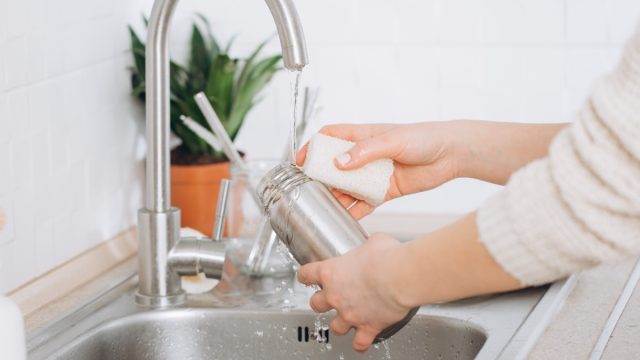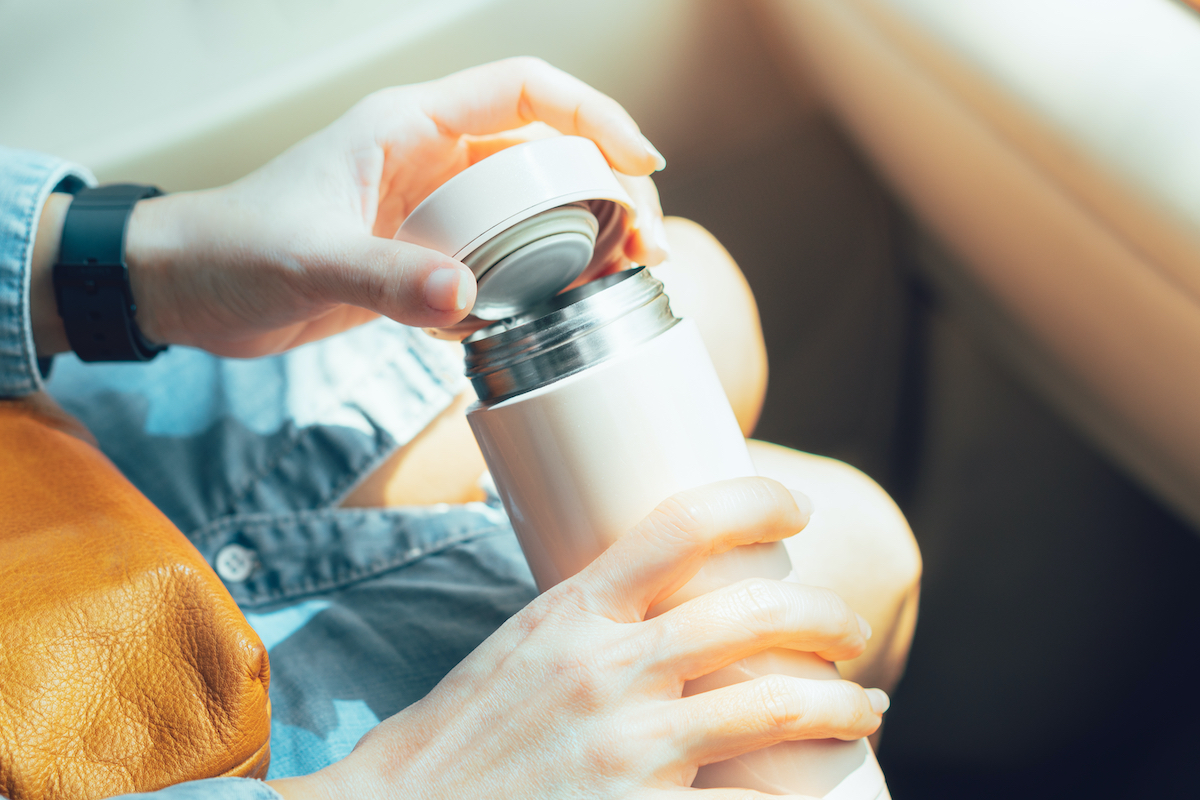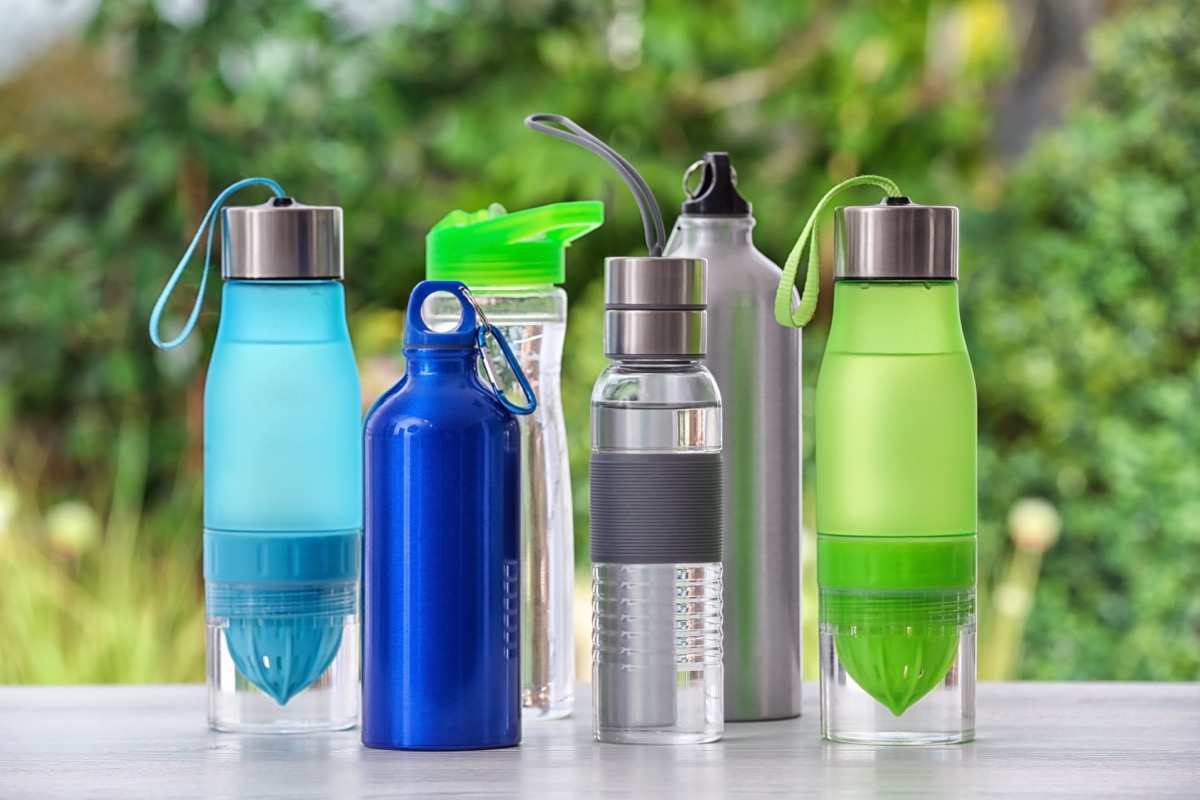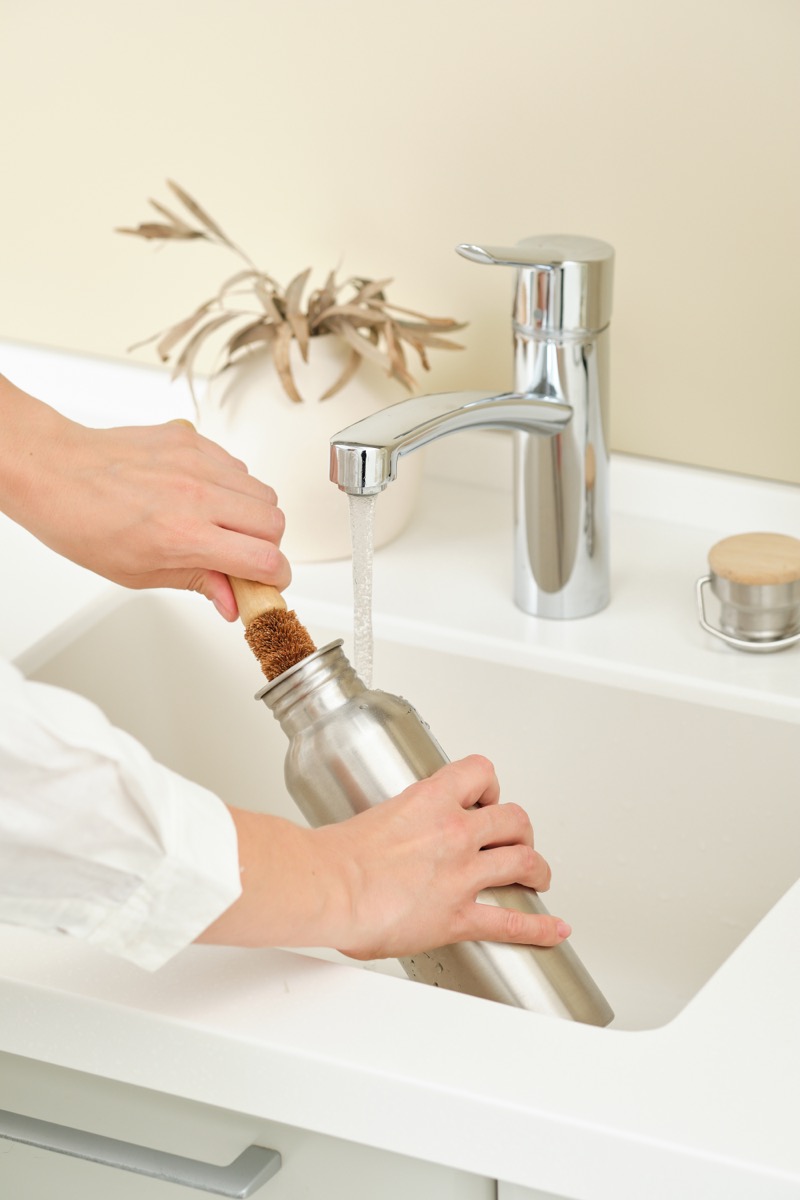What Happens If You Don’t Wash Your Water Bottle for a Month, According to Doctors

Carrying a reusable water bottle is a great way to stay hydrated without needlessly wasting money and plastic on single-use options. But if you’re in the habit of bringing a water bottle with you everywhere you go, when’s the last time you washed it?
Experts say many people fail to clean their water bottles often enough, leaving them vulnerable to harmful bacteria that can build up over time. In fact, a whole host of illnesses can arise as a result of poor water bottle hygiene, especially if you use certain types of bottles. Read on to learn what experts say can happen if you don’t wash your water bottle for a whole month—and how to safely sanitize it if you’ve let it go that far.
READ THIS NEXT: What Happens When You Don’t Wash Your Sheets Every Week, Doctors Say.
Unwashed water bottles are full of germs.

If you haven’t washed your water bottle for a month, chances are it’s teeming with bacteria and mold. That’s because each time you drink from your bottle, you’re transferring germs and other contaminants from your mouth to a moist environment, creating the perfect breeding ground for them to grow.
“Water bottles that are never properly washed have a higher level of bacteria than bottles that are regularly rinsed and washed,” says Soma Mandal, MD, a board-certified internist at Summit Health in Berkeley Heights, NJ. She recommends regularly washing your water bottle with hot soapy water.
READ THIS NEXT: If You’re Using Any of These “Unsafe” Cleaning Products, Stop Now, FDA Warns.
Some water bottles get grosser than others.

Certain types of water bottles are more likely to harbor harmful bacteria than others, Mandal notes. She says that those with squeeze tops and other hard-to-clean nozzles are typically the least sanitary—even after washing. She says that glass water bottles tend to have the least amount of germs “because glass is less porous than plastic or metal. Since it is transparent, it is also easier to see if it is dirty inside.” However, stainless steel also offers a viable alternative if you’re worried about a glass bottle breaking.
Mandal adds that how you use your water bottles can also impact their cleanliness. “Bottles that are frequently refilled have more risk for contamination,” she notes, adding that drinking beverages other than water—especially sugary drinks—can cause more bacteria to accumulate.
Failing to wash your water bottle regularly can cause a range of illnesses.

If you haven’t washed your water bottle in a month and continue to refill and drink from it, you’re putting yourself at heightened risk of a range of unpleasant illnesses.
“Drinking from a dirty reusable water bottle can lead to gastrointestinal infections from bacteria like E.coli, Salmonella, and Campylobacter,” says Chris McDermott, MSN, an advanced care registered nurse with Intercoastal Consulting & Life Care Planning. “Staphylococcus aureus, norovirus, and influenza can also be contracted,” he adds.
For more health news sent directly to your inbox, sign up for our daily newsletter.
Here’s how—and how often—to wash your water bottle.

To ensure that your water bottle is clean and safe, wash it every day, Mandal says. “Ideally, you want to clean your water bottles on a daily basis with hot soapy water, and allow them to air dry. You can also fill your water bottles and keep them in the refrigerator,” she tells Best Life, noting that you should be sure to drink any stored water the same day you bottle it.
McDermott adds that you should also plan on periodically giving your bottle a deeper clean. “A weekly thorough clean is also recommended, by either soaking your bottle in hot water or vinegar or using a brush to scrub inside,” he says. “This can help prevent additional buildup and odors.”